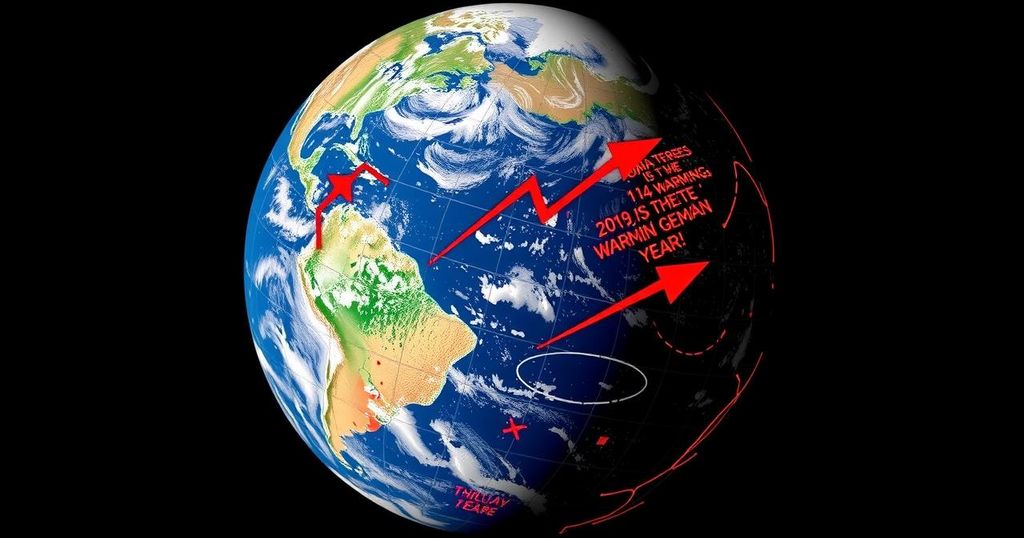For the third straight year, global climate change projections have not improved, indicating ineffective efforts against rising emissions, particularly from major contributors like China and the U.S. The current temperature trajectory suggests an alarming increase of 2.7 degrees Celsius compared to pre-industrial levels, prompting urgent discussions at U.N. climate talks regarding financial commitments for developing nations.
For the third consecutive year, projections regarding global temperature increases remain unchanged despite ongoing climate change mitigation efforts. This stagnation is exemplified by recent data from Climate Action Tracker, revealing that the Earth is on course to become 2.7 degrees Celsius warmer than pre-industrial levels. The revelations coincide with ongoing United Nations climate talks in Baku, Azerbaijan, where nations seek to establish new targets for reducing greenhouse gas emissions and address financial support from wealthier countries to developing nations. The current trajectory indicates a rise of 1.3 degrees Celsius above pre-industrial figures, dangerously close to the 1.5-degree threshold agreed upon during the Paris Climate Agreement in 2015. Climate experts emphasize that the predominant cause of atmospheric warming stems from human activities, particularly fossil fuel consumption, which exacerbates extreme weather phenomena such as floods and droughts. Notably, even the most favorable projections by Climate Action Tracker, which assume full compliance with existing commitments by countries, still forecast an increase of 1.9 degrees Celsius, reflecting continued emissions growth. Significant contributors to the unfavorable outlook include China and the United States, with the former’s emissions projected to peak higher than expected. Additionally, anticipated changes in U.S. climate policy could lead to further deterioration of the situation, with a potential increase of 0.04 degrees Celsius due to possible rollbacks of significant climate initiatives. Experts stress the urgency of the situation, arguing that the absence of a downward trend in global emissions, despite a backdrop of severe climate events, indicates a failure in the political response to the crisis. In Baku, discussions center on financial responsibilities of developed nations towards assisting poorer countries in their climate adaptation and mitigation efforts. The goal of providing $100 billion annually in aid has lapsed, with calls for a new commitment rising to $1.3 trillion. A recent report highlights that approximately $1 trillion is required annually from external sources to support developing countries in transitioning to low-carbon energy solutions and addressing the impacts of climate change comprehensively. Experts advocate for a substantial increase in climate financing across all nations to safeguard against future climate challenges.
The article addresses the persistent challenges in combating climate change, highlighting that for three years in a row, temperature projections have not improved despite international efforts. This situation is underscored by the backdrop of ongoing U.N. climate negotiations aimed at emission reduction targets and financial assistance for developing countries, drawing attention to the roles of major emitters like China and the United States. The implications of these findings are critical as they indicate a stagnation in climate action at a time when extreme weather events are becoming increasingly frequent and severe.
In summary, climate change mitigation efforts are proving ineffective as global temperature projections remain stagnant for the third consecutive year. While discussions at the U.N. climate talks in Baku focus on necessary financial commitments from developed nations to assist developing countries, the grim reality of rising emissions, particularly from major contributors, prompts concern about the efficacy of current climate strategies. Moving forward, substantial increases in investment and a clear, actionable commitment from rich nations are paramount to address the impending climate crisis effectively.
Original Source: www.voanews.com






